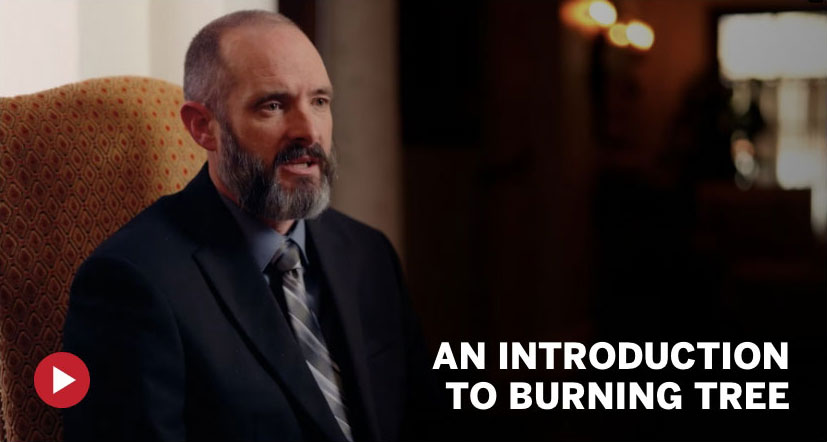Long-Term Treatment Referrals for Addiction & Mental Health Professionals
Substance Use Disorder (SUD) and Mental Health professionals play a crucial role in diagnosing, treating, and managing the care of individuals facing addiction and mental health challenges. Their expertise allows them to identify when a person may benefit from long-term, chronic addiction treatment. Below, we outline several circumstances under which they might make such a referral, along with observations that inform their decision to act.
Who We Are
Burning Tree Ranch is a specialty program dedicated to the treatment of chronic addiction and mental health. Our program is long-term, progress-based, and highly intensive. Since 1999, we have supported countless referring professionals in delivering ethical, high-quality solutions to the clients and families they represent.
Circumstances for Referral to Long-Term Treatment
Severity of Addiction
When the addiction is severe and significantly impairs the individual's daily functioning, long-term treatment might be necessary to provide the comprehensive care needed for recovery.
Co-occurring Mental Health Disorders
The presence of co-occurring mental health disorders, such as depression, anxiety, or bipolar disorder, alongside SUD, often necessitates a more intensive and extended treatment approach to address both sets of issues effectively.
Previous Treatment Outcomes
Individuals who have not responded to short-term treatment programs or have a history of relapse may require a more intensive, long-term treatment plan to address the underlying causes of their addiction.
High Risk of Harm
If there's a significant risk of harm to themselves or others due to their substance use, professionals may recommend long-term treatment as a way to manage and mitigate these risks.
Social and Environmental Factors
When a person's environment or social situation (such as living conditions, peer group, or family dynamics) contributes to their addiction, a more extended treatment period may be needed to develop coping strategies and establish a stable support system.
Observations Informing the Need
SUD and Mental Health professionals use a combination of clinical assessment, observation, and judgment to determine the most appropriate level of care for each individual. Their recommendation for long-term, chronic addiction treatment is based on a holistic view of the individual’s needs, aiming to provide the best chance for recovery and a return to functional, healthy living.
Physical Health Decline: Observing a deterioration in physical health that can be directly attributed to substance use, including chronic illnesses or conditions worsened by addiction.
Mental Health Status: Noticing signs of worsening or unmanaged mental health conditions that are intertwined with the individual’s substance use.
Behavioral Changes: Significant changes in behavior, including increased secrecy, withdrawal from social activities, or behaviors that put the individual or others at risk.
Lack of Support System: Recognizing that the individual lacks a supportive environment or the resources necessary to achieve sobriety in their current situation.
Non-compliance or Poor Response to Treatment: Individuals who repeatedly fail to comply with treatment recommendations or do not show improvement with standard levels of care may require more specialized or intensive intervention.

Navigating Client Relationships: When Estate & Probate Attorneys Encounter Addiction
The responsibility of Substance Use Disorder (SUD) and Mental Health professionals to recommend long-term chronic addiction treatment to a client is a critical aspect of their role in providing comprehensive care. This duty is rooted in their commitment to the client’s health, recovery, and well-being.
Ethical Duty to Provide Best Care
Professionals are ethically bound to act in the best interests of their clients, which includes recommending the most appropriate level of care based on the client’s condition, needs, and circumstances.
Making such recommendations requires a thorough assessment of the client’s history, current condition, and potential risks, ensuring that the advice for long-term treatment is informed and evidence-based.
Professional Judgment and Clinical Assessment
SUD and Mental Health professionals use their clinical judgment to assess the severity of the addiction and any co-occurring mental health disorders, determining if long-term treatment is necessary for effective recovery.
Recognizing that each client’s situation is unique, professionals tailor their recommendations to fit their needs, including considering their social, environmental, and psychological factors.
Commitment to Client and Beneficiaries’ Interests
Part of an estate or probate lawyer’s role is to help protect the assets within an estate and ensure they are distributed according to the deceased’s wishes. If addiction poses a risk to these objectives, the lawyer might find it appropriate to recommend treatment as a means of mitigating this risk.
Understanding and navigating family dynamics is often part of handling an estate. Suppose addiction is causing conflict or distress that could impact the estate’s administration or disrupt peaceful distributions. The lawyer might suggest treatment options to support harmony and resolution in that case.
Comprehensive Care Approach
The recommendation for long-term treatment is part of a holistic approach to care, addressing not just the symptoms of addiction but the underlying causes, including mental health issues, to promote sustained recovery.
Professionals are responsible for coordinating with other healthcare providers, treatment facilities, and support networks to ensure a seamless transition to long-term care and to provide ongoing support throughout the treatment process.
Advocacy and Support
SUD and Mental Health professionals often advocate on behalf of their clients to ensure they have access to the necessary resources and treatment programs, navigating barriers to care when needed.
Part of their responsibility includes educating clients and their families about the nature of addiction, the benefits of long-term treatment, and what to expect from the recovery process.
Monitoring and Follow-Up
Professionals commit to monitoring the client’s progress throughout treatment, ready to adjust recommendations as the client’s needs evolve.
Long-term treatment plans often include strategies for relapse prevention, with professionals playing a key role in helping clients develop the skills needed to maintain sobriety post-treatment.

From Resistance to Recovery: Leveraging Professional Influence for Treatment Success
Substance Use Disorder (SUD) and Mental Health professionals can play a pivotal role in motivating individuals and their families towards embracing long-term treatment. Their expertise and trusted position enable them to create a compelling case for treatment that aligns with the family’s best interest. Here’s how they might achieve this:
CREATING MOTIVATION FOR TREATMENT
- Educating on the Benefits: Providing clear, evidence-based information on how long-term treatment can lead to better recovery outcomes, improve quality of life, and restore family relationships can be highly motivating. Highlighting success stories and the potential for a more stable future can inspire hope.
- Addressing Concerns and Fears: Discussing any fears or misconceptions about treatment, including concerns about stigma, the treatment process, or potential challenges, can help alleviate anxieties and build motivation.
- Emphasizing the Impact on the Family: Explaining how the individual’s recovery benefits them and the entire family’s well-being and harmony. This can include discussing the positive changes families can expect as their loved one progresses through treatment.
- Personalizing the Treatment Plan: Showing how the treatment plan is tailored to meet the individual’s specific needs, including any co-occurring mental health issues, can make the prospect of treatment more appealing and relevant.
Incorporating Leverage for Treatment
- Involving the Family in the Treatment Process: Engaging family members in therapy sessions or family programs can provide additional support and motivation for the individual to commit to and complete treatment. This involvement can also educate the family on supporting their loved one.
- Setting Achievable Goals: Working with the individual to set short-term and long-term goals for recovery can be a powerful motivator. Achieving these goals can provide a sense of accomplishment and a tangible measure of progress.
- Leveraging the Therapeutic Relationship: Building a strong, trusting relationship between the professional and the client can be a form of leverage. The desire not to disappoint or the motivation to demonstrate progress to someone who has invested time and care can be powerful.
- Facilitating Access to Resources: Assisting the family in navigating insurance, finding treatment programs, and understanding the financial aspects of treatment can reduce barriers to starting treatment. Professionals may also identify community resources or support groups that offer additional encouragement.
- Monitoring and Feedback: Establishing a system for regular check-ins and feedback on progress can keep the individual accountable and motivated. Positive reinforcement for milestones achieved in treatment can further incentivize continued effort.
SUD and Mental Health professionals, through their expertise and compassionate approach, can significantly influence an individual’s decision to seek and complete treatment. Professionals can create a supportive environment that encourages recovery and fosters long-term well-being by addressing the individual’s and the family’s needs, providing education, and leveraging their therapeutic relationship.
Considering Long-Term Treatment for Your Client
The Need to Act
What are the circumstances under which you may refer a person to long-term, chronic addiction treatment? What are you observing that informs you of the need to act?
Fiduciary Duty
Do you have a moral or fiduciary responsibility to make a recommendation for long–term chronic addiction treatment for your client?
Motivation for Completing Treatment
What motivation for treatment might you be able to create as a trusted professional serving a family’s best interest? How might you incorporate leverage for the client to go and complete treatment?

We've Worked Closely with Healthcare Professionals to Refer Clients to Burning Tree for Long-Term Treatment
How Do I Know If My Loved One is a Fit for Burning Tree Ranch?
Authentic Long-Term Treatment
Burning Tree specializes in treatment for Chronic Relapse
We understand the complex, multi-faceted issues many of our families face when it comes to addiction. The circumstances of long-term residential treatment allow us to create a treatment program unlike anything else in the world.
Operating outside the limitations of a traditional 30, 60 or 90-day format, Burning Tree adheres to progress-based metrics that inform the clinical treatment team of the unique mental, emotional and spiritual needs of the individual.
We are the only treatment center in the United States that combines time-intensive residential treatment with a therapeutically coordinated aftercare program focused singularly on the treatment of chronic relapsers.
Featured In Top Publications













